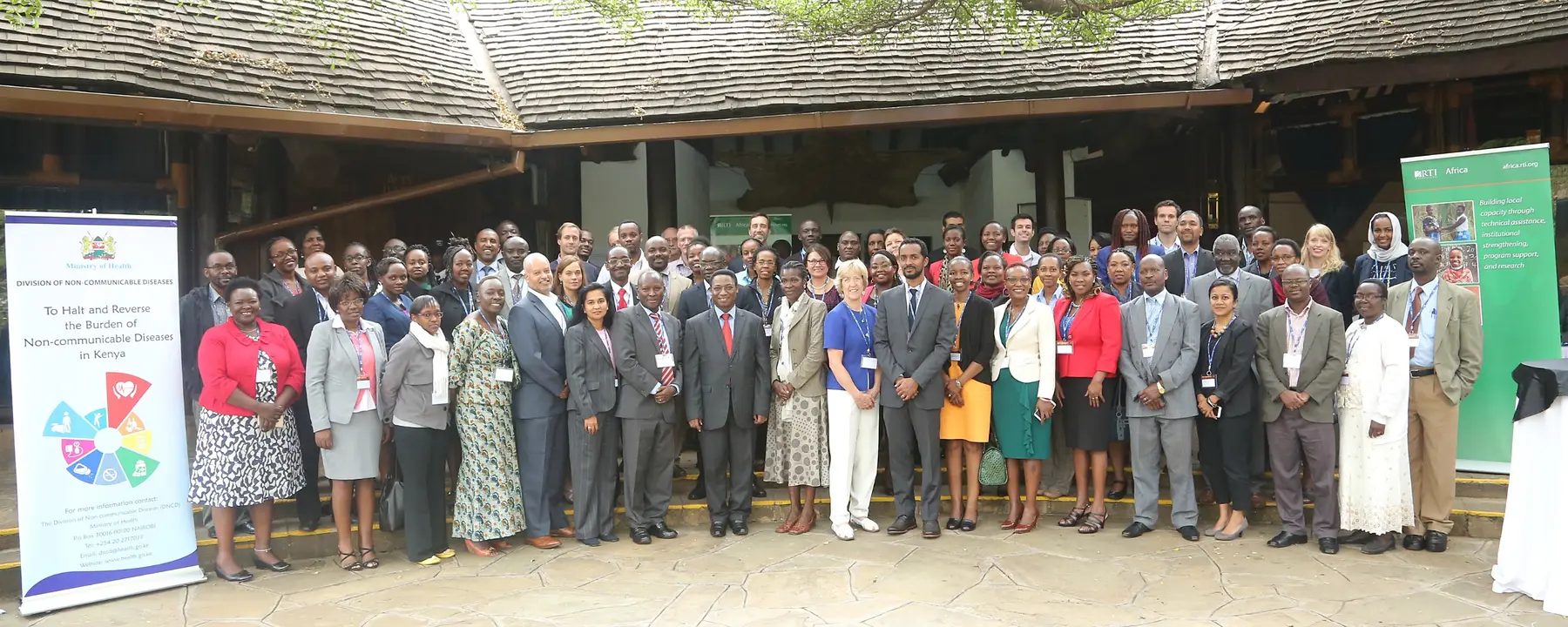Using research to raise awareness and empower country-led strategies to combat NCDs in Kenya
Nearly three-quarters of all noncommunicable disease (NCD) deaths worldwide take place in low- and middle-income countries, according to the World Health Organization (WHO). These 28 million deaths—from cancers, diabetes, and cardiovascular and respiratory diseases—are related to poverty and lack of detection and treatment. In these countries, inadequate healthcare systems can lead to higher rates of premature deaths as well.
In Kenya, the main risk factors for NCDs are tobacco use, physical inactivity, unhealthy diets, and harmful use of alcohol due to effects of globalization on marketing and trade. Being diagnosed with an NCD often means years of poor health and disability, making NCDs a factor in 30.2 percent of all disability-adjusted life years in Kenya.
In addition, NCDs accounted for 31 percent of deaths in the country in 2015, with 51 percent being considered premature (people under the age of 70 years old). More than half of in-patient admissions and 40 percent of hospital deaths in Kenya are due to NCDs as well, severely compromising health care budgets.
Symposium on Implementation Science Harnesses Efforts to Curb NCD Prevalence
In an effort to address these daunting statistics, the Kenyan Ministry of Health has unveiled various interventions aimed at reducing the prevalence of NCDs in the country. These interventions could help ease the burden that NCDs have placed on the socio-economic development of Kenya’s 43 million people—not only those who suffer from NCDs, but those who care for them.
To assist in this effort, RTI International worked with Kenya’s Ministry of Health and NCD Alliance Kenya to launch the 2016 Symposium on Noncommunicable Diseases in Nairobi, Kenya. Other organizations involved included the Kenya Medical Research Institute, Global Diagnostic Imaging, Healthcare IT & Radiation Therapy, and the University of Nairobi.
The symposium, which was held in September 2016, was the culmination of a year-long effort to create a forum for leaders to share ongoing research, identify research needs, and formulate a coordinated road map to guide future implementation research. The event brought together local, regional, and international health researchers in hopes of sparking the exchange of ideas focused on the quest for actionable policies to ease the burdens created by NCDs.
Among the key discussions were the following:
- The role of research in curbing NCDs
- Strategic planning, policies, and prioritization
- Integrated healthcare delivery and financing of NCD services
- Data needs for planning and evaluating NCD interventions
- Need for implementation research and infrastructure for cancer treatment
- Increasing awareness of NCD risk factors
Formulating a Research Agenda that Supports Kenya’s National NCD Strategy
The symposium continued and bolstered ongoing efforts to develop a national NCD strategy that includes a program to address prevention and management in Kenya. Serving as a blueprint for prioritizing activities geared toward halting and reversing the NCDs burden, the national NCD strategy will span 2015–2020.
RTI is working with the Kenyan Ministry of Health to help implement this strategy, joining a multipronged effort that includes government, education, health, industrial, civil society, and private-sector resources. Our team is focusing on developing a research agenda that will support the implementation of Kenya’s NCD strategy.
- Kenya Ministry of Health
- NCD Alliance Kenya
